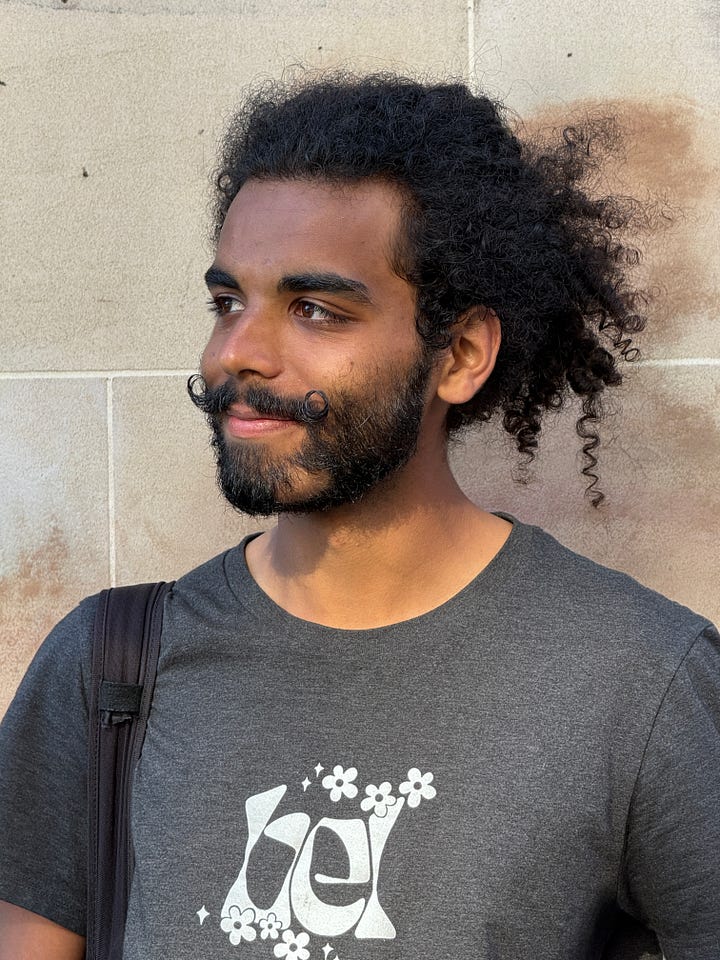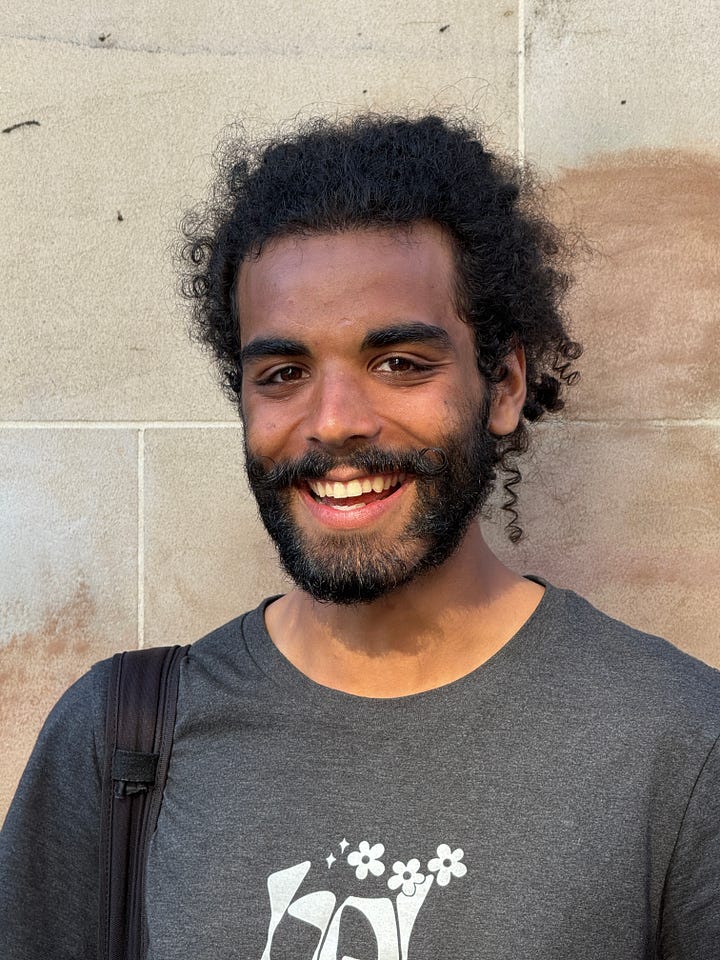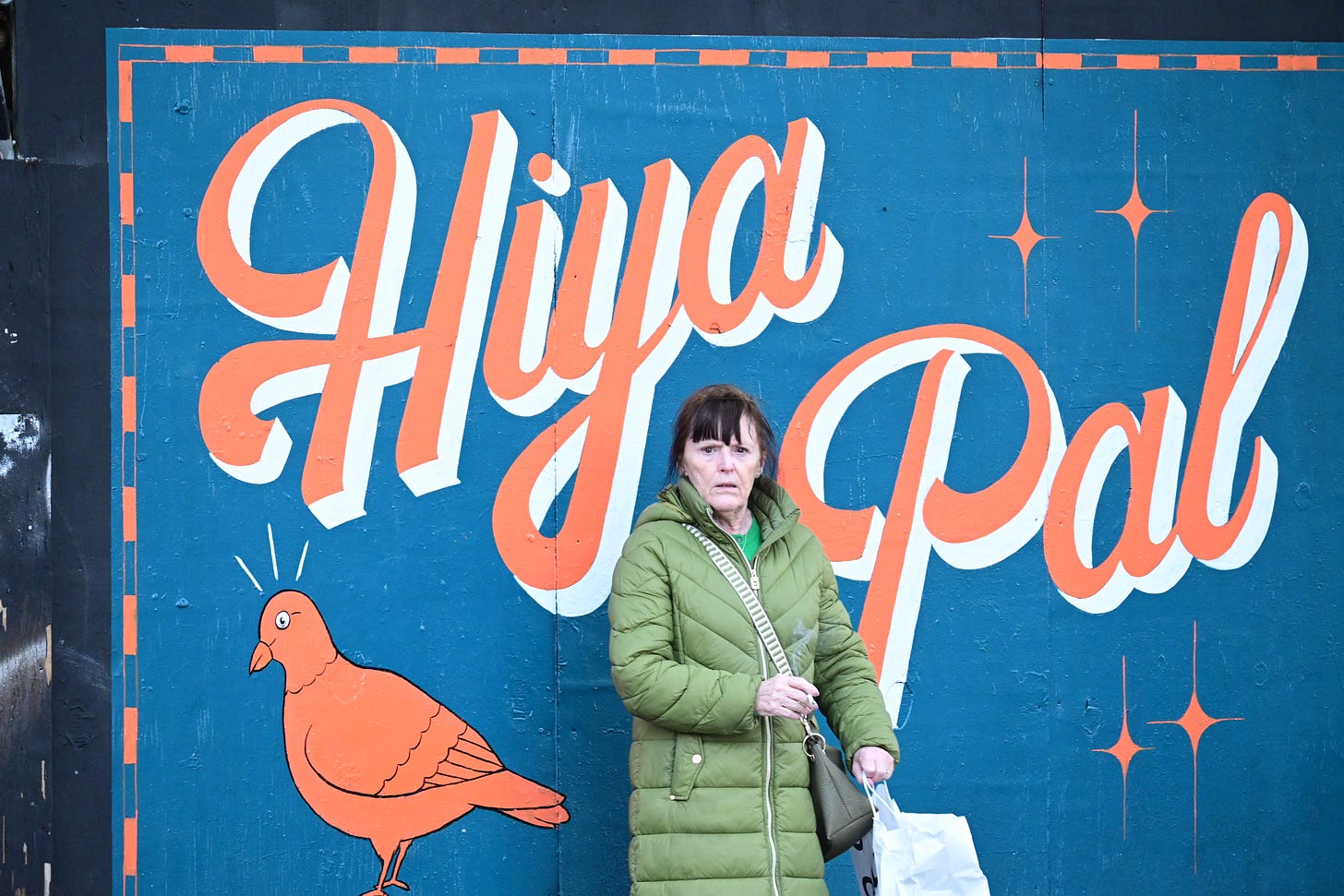There is a debate among photographers about whether photography can capture a person’s soul. I believe it can, but not in the way you might think. It is not the soul of the sitter which is laid bare, it’s that of the photographer. Every photo we take, every edit, every crop, every selection, every print—it all amounts to an unwitting self-portrait.
For instance, this photograph of a lad taking a selfie on a building site is revealing in several ways. There is a clear distance from the action because it was taken through a fence with a long lens. It is a picture of harmless transgression for the sake of vanity and ego. A cone, the quintessential symbol of Glasgow, reminds us where we are. There is entropy and decay, with potential for renewal—all things I see in myself. That’s why I took it; that’s why I share it.1

These revelations through photography open up a deeper possibility: using the camera as a tool for self-discovery. By knowing about your psychological obsessions, you can do the work of integrating them in the relatively safe space of the camera. Just as Jo Spence had phototherapy where she could re-enact traumatic events, we might propose a form of photoanalysis where we can reflect on our character flaws.
At the beginning of this year, I started documenting Glasgow's Golden Z. My interest was in capturing people without them being aware of the camera. I assumed that if the person knows there is a camera, they either freeze or perform; neither of which is true to who they are.
Occasionally, I was caught in the act and had to confront people’s hostility and dismay. Just because I had got away with a candid photo before, it didn’t make it right now. Indeed, since writing about ethics, I’ve met an increasing number of photographers have concluded that any photograph taken without explicit consent is dubious.2
My street photography is often so distant that there is often a pane of glass between me and my subjects. There is little chance of being called out by people on buses, especially if it is about to drive away. I revel in seeing people who are contemplative or alienated. But perhaps the real alienation is in me.
Over the last six months, I’ve learnt how corrosive it is to keep taking without giving back. Despite my awkwardness, I realise that I need to talk with people and then ask them for portraits. I want to understand who they are and what motivates them, rather than just guessing. Doing so has left me far more connected to the world around me.


What does your photography reveal about your soul? Is there anything you need to work on?
This photograph is being exhibited this weekend (5-6 July) in The Revelator, Glasgow’s only cultural venue set in a Wall of Death.










Love the bus photo 👍
But be careful not to get a smack in the face in some locations 😩🥹
Well said Neil. This has been an operating principle for the way I practice photography for a while. It's not always an immediate correlation, but the benefit of an image is you can revisit it a year or a decade in the future and still glean something meaningful.